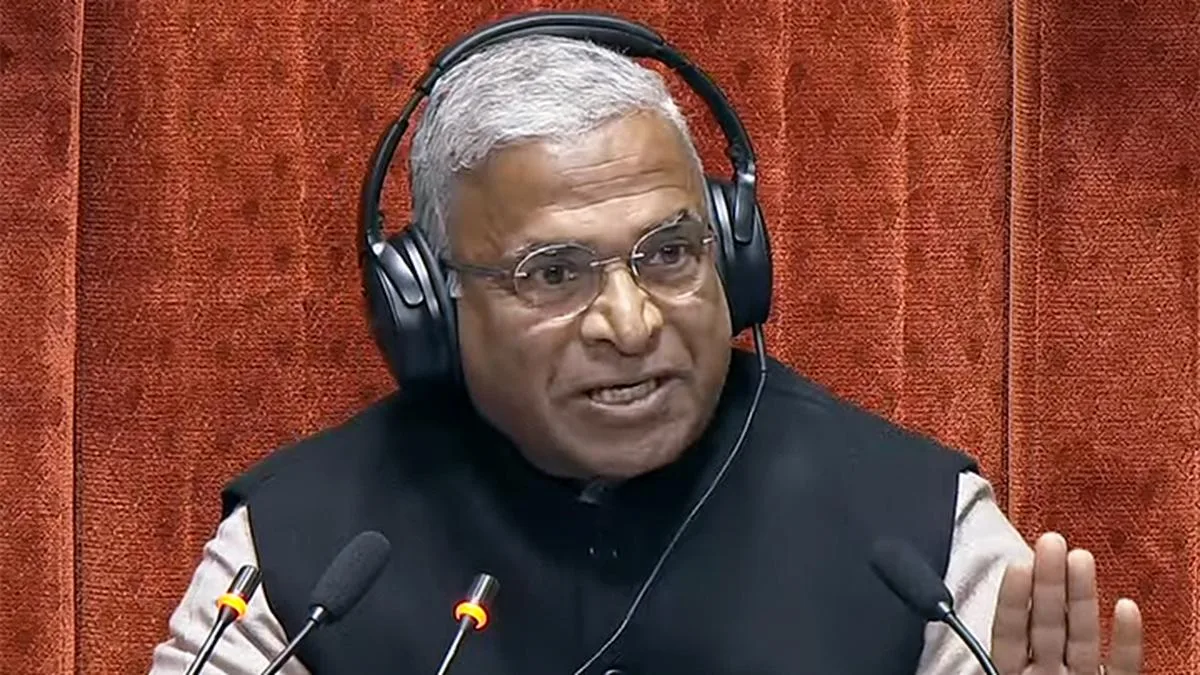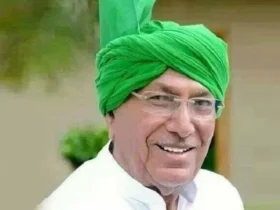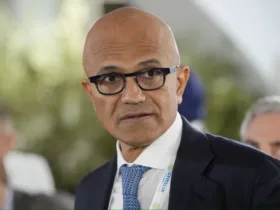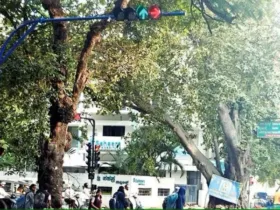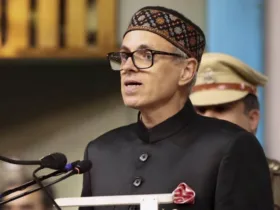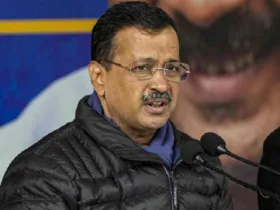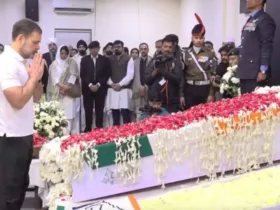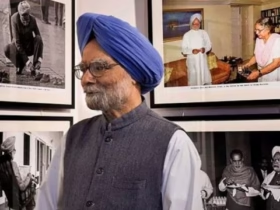On December 19, 2024, a significant political development occurred when the Deputy Chairman of the Rajya Sabha, Harivansh, dismissed the impeachment notice filed by opposition members seeking the removal of Vice President Jagdeep Dhankhar from his position. The opposition had filed the notice accusing Dhankhar of exhibiting bias in his conduct, particularly in his role as the Chairman of the Rajya Sabha. Harivansh’s ruling, which came as a response to the notice, has further heightened the already tense political atmosphere between the ruling Bharatiya Janata Party (BJP) and opposition parties.
This detailed analysis aims to break down the events leading up to this ruling, the nature of the allegations against Vice President Dhankhar, the response from Harivansh, and the broader political implications of this incident.
The Background of the Impeachment Notice
The impeachment notice was filed by a coalition of 60 opposition MPs who have been critical of Vice President Dhankhar’s conduct during his tenure as the Chairman of the Rajya Sabha. The opposition members cited several instances where they felt Dhankhar’s actions were biased or unfair. Among the most notable accusations was that Dhankhar had used his power to stifle opposition voices in the Rajya Sabha.
The opposition alleged that Dhankhar had consistently used his position to favor the ruling party, particularly the BJP, by denying opportunities to opposition MPs to speak during crucial debates. Additionally, they accused him of using parliamentary privilege motions to silence opposition members, which, they argued, undermined the spirit of democratic debate in the upper house of Parliament.
One of the key points raised in the impeachment notice was that Dhankhar had misused his powers to address opposition leaders in a manner that was derogatory. Opposition leaders felt that Dhankhar’s conduct had lowered the dignity of the office of the Vice President, who also holds the position of Rajya Sabha Chairman. These allegations formed the basis for the opposition’s demand for Dhankhar’s removal from office, which they deemed necessary to preserve the sanctity of the Rajya Sabha.
The notice was filed in a highly charged political environment, where tensions between the ruling BJP and opposition parties have been running high. The opposition had already been vocal about several issues, ranging from the handling of the economy to the government’s stance on farmers’ protests and democratic freedoms. In this context, the impeachment notice against Dhankhar was seen by some as an extension of these broader political battles.
Harivansh’s Dismissal of the Impeachment Notice
In response to the impeachment notice, Rajya Sabha Deputy Chairman Harivansh dismissed it, calling the move “hasty” and “flawed.” Harivansh, a member of the BJP and a seasoned parliamentarian, stated that the allegations against Vice President Dhankhar lacked substance and factual accuracy. He referred to the impeachment notice as a “misadventure” that sought to harm the reputation of the Vice President’s office.
Harivansh’s ruling emphasized that the impeachment process could not be initiated lightly, and any such notice must be supported by clear evidence of wrongdoing. He noted that the motion lacked the necessary grounds to justify the removal of a sitting Vice President, especially considering the constitutional safeguards around such a high office. According to Harivansh, parliamentary procedures must be upheld, and any action that undermines the dignity of constitutional institutions would be harmful to democracy.
This ruling was significant for several reasons. First, it reaffirmed the constitutional sanctity of the office of the Vice President and his dual role as the Chairman of the Rajya Sabha. Second, it underlined the importance of maintaining order and decorum in Parliament, particularly when dealing with such serious matters as the impeachment of a high constitutional office-holder. Harivansh’s dismissal of the notice also reinforced his own position as the Deputy Chairman, showing that he would not easily succumb to pressure from opposition forces, regardless of the political climate.
Opposition’s Response to Harivansh’s Ruling
The opposition’s reaction to Harivansh’s ruling was swift and critical. Congress, Trinamool Congress, and other opposition parties immediately condemned the dismissal of the impeachment notice, accusing the ruling government of misusing parliamentary procedures to protect the Vice President from legitimate scrutiny. The opposition argued that Harivansh’s dismissal of the motion was politically motivated, given his affiliation with the ruling BJP.
Opposition leaders pointed out that their actions were a response to the perceived erosion of democratic values under the current government, and that the Vice President’s alleged bias in Rajya Sabha proceedings was a symptom of a much larger problem. They claimed that Dhankhar’s role in Parliament had undermined the fairness of debates, particularly in issues where the government was under criticism. The opposition further argued that this ruling set a dangerous precedent for future cases of alleged misconduct by high office-bearers.
Moreover, several opposition leaders expressed concerns about the increasing concentration of power within the executive and the weakening of independent institutions, including the judiciary and Parliament. They viewed the dismissal of the impeachment notice as an attempt to stifle any form of dissent within Parliament and diminish the role of the opposition in holding the government accountable.
Broader Implications for Indian Politics
The dismissal of the impeachment notice is a significant moment in India’s ongoing political turmoil, which has been characterized by increasing friction between the ruling BJP and opposition parties. The ruling has amplified concerns about the impartiality of parliamentary procedures and the broader challenges to democratic institutions in the country.
1. The Role of the Vice President and Rajya Sabha Chairman
One of the central points of contention in this incident is the role of the Vice President as the Chairman of the Rajya Sabha. The office is expected to remain neutral and non-partisan, overseeing parliamentary proceedings in a manner that ensures fairness and equal opportunity for all members, irrespective of their political affiliation. The opposition’s allegations suggested that Dhankhar had not lived up to these expectations, which, if true, could have serious implications for the credibility of the Rajya Sabha.
However, Harivansh’s ruling has now reinforced the idea that allegations against high constitutional office-bearers must be taken seriously but also be based on solid evidence. The ruling may deter any future attempts to initiate impeachment motions without clear and justifiable grounds, ensuring that such actions are not used as political tools in an already polarized environment.
2. Impact on Opposition-Government Relations
This incident has further strained the relationship between the opposition and the ruling BJP. The opposition’s demand for Dhankhar’s removal is emblematic of the ongoing battle for influence and control over parliamentary narratives. In the run-up to the 2024 general elections, the opposition’s strategy of confronting the government on various fronts, including issues of governance and parliamentary fairness, is likely to intensify. The BJP, on the other hand, is likely to present the dismissal of the impeachment notice as a victory, reinforcing their stance that the opposition’s attempts to undermine key constitutional offices are unfounded and politically motivated.
3. Constitutional and Democratic Integrity
The ruling by Harivansh highlights the importance of protecting the integrity of constitutional institutions, even in the face of intense political rivalry. This incident underscores the critical role that institutions like Parliament and the Vice President’s office play in upholding the democratic fabric of India. Whether the opposition’s allegations were substantiated or not, the fact remains that such disputes bring to light the need for greater transparency and accountability within the functioning of key democratic bodies.
Conclusion
The dismissal of the impeachment notice against Vice President Dhankhar by Rajya Sabha Deputy Chairman Harivansh has ignited a new phase in the political drama unfolding in India. The ruling has added fuel to the already heated political discourse, as it brings into sharp focus the ongoing battle for influence between the BJP and opposition parties. While Harivansh’s ruling has upheld the sanctity of the Vice President’s office, it has also heightened concerns about the fairness and transparency of parliamentary procedures in the current political climate. The full implications of this incident will continue to unfold as the political landscape prepares for the 2024 elections.

